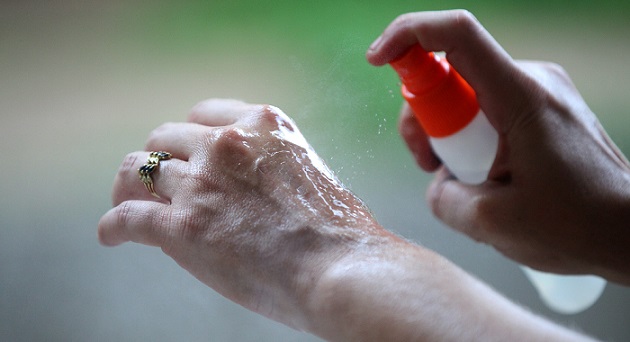
VALDOSTA – Public Health officials want to remind South Georgians the importance of preventing mosquito bites.
When it comes to mosquito-borne illnesses, preventing bites and not allowing outdoor areas to become a mosquito breeding hotspot are key.
The first step that individuals can take is to always wear mosquito spray whenever outdoors. Make sure to use insect repellent containing DEET, picardin, IR3535 or oil of lemon eucalyptus on exposed skin and/or clothing.
Putting on insect repellent seems obvious during July and August; however, it is still important even in late spring and early summer. Earlier in the season, when it is not as hot outside or when weather permits, people can also wear long sleeve and pants to prevent bites.
Another important step is to practice “tip and toss” in outdoor areas. Eliminate mosquito breeding sites by emptying standing water from flowerpots, buckets, barrels, wading pools and other containers. Drilling holes in tire swings so water can drain is another important step that is often missed.
At the beginning of the season, individuals should also check window and door screens. Having secure, intact screens on windows and doors helps prevent mosquitoes entering the home.
Most mosquito-borne illnesses are transmitted to humans and animals through the bite of an infected mosquito.
“We want to remind everyone that, when it comes to preventing mosquito borne illnesses, the best step to protect yourself and your loved ones is to be proactive,” said Kenneth Lowery, South Health District epidemiologist. “Our area saw a very mild winter and that often increases the potential for a more active mosquito season.”
Although there is no vaccine for humans to prevent mosquito-borne illness, there are EEE and West Nile Virus vaccines available for horses. Horse owners should contact their veterinarian to have their horses vaccinated as early as possible.
For more information on mosquito borne illnesses visit the Centers for Disease Control and Prevention’s website at www.cdc.gov.
